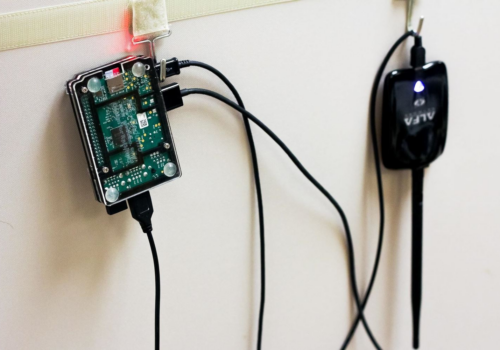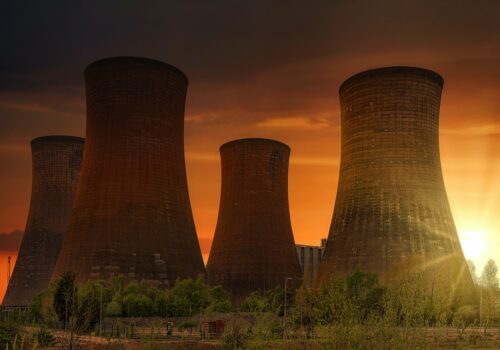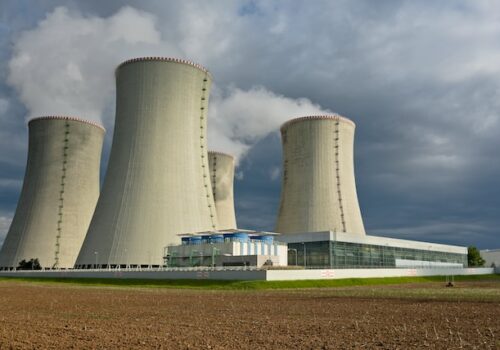Effective Policies for Nuclear Power Plants
Every nuclear power plant is different. Every plant is built to meet the needs of a specific location and the people who live there. But despite these differences, there are some common policies that every nuclear power plant should follow.
These policies are designed to protect the safety of people living near the plant. They also ensure that the plant operators have access to all the information they need to run their facilities safely and efficiently.
Here are some examples of effective policies for nuclear power plants:
Safety Culture Policy
The safety culture of a facility is how employees think about safety, what they do about it, and how they do it. It includes everything from their attitudes about safety to how often they address safety issues in meetings and reports. It is the attitude, behavior, beliefs, and practices that define a safe work environment.
Safety is often measured by examining how employees view their safety and respond to accidents or near misses. If workers see an incident as a mistake or an isolated event, they may be less likely to report it in the future because they don’t believe it will make a difference.
Many organizations have instituted programs encouraging employees to speak up. An example is anonymous suggestion boxes or employee surveys where people can report incidents anonymously.
Workforce Development Policy
With the introduction of new technologies, new generations enter the workforce with different job skills than previous generations had when they started their careers. This policy provides guidelines for how to train workers to keep up with technological changes and best serve customers.
A workforce development policy is a set of principles designed to develop human capital within an organization. It sets out practical actions that an employer can take to improve employee skills and competencies over time.
Allowing them to engage in other activities beyond work can also improve their creativity at work. If they are gaming fanatics, they could be interested to know how does Gamstop work during their free time.
Workforce development policies are in every industry, including nuclear energy. They are particularly important for nuclear power plants because of their unique nature. Large-scale facilities with highly technical equipment and processes require complex operations from highly skilled employees who often work remotely or on different shifts.
Emergency Response Policy
This policy outlines how emergency response teams at a facility should respond to emergencies such as fires or floods to protect people. Every nuclear facility needs an emergency response plan outlining how employees will respond in an emergency like a fire or an earthquake.
An emergency response plan should include procedures for evacuating the facility. It should also have detailed instructions on how to respond in case there’s damage to equipment or buildings at the site.
The emergency response policy is a detailed plan that outlines the roles and responsibilities during an emergency at a nuclear power plant. It also includes instructions for evacuation, sheltering-in-place, protective actions, and other actions that may be necessary. The development of this policy involves local authorities, fire and police departments, hospitals, and other relevant agencies.
All staff members should review the emergency response policy at least annually. The response procedures require regular practice so everyone knows what to do in an emergency.
Creating Effective Communication
Communication is one of the most important aspects of managing a nuclear power plant. Effective communication can help prevent accidents and limit their impact when they happen. It also helps build trust with the public, essential to ensuring that your company will continue to operate safely and efficiently for years to come.

To improve your communication strategy, you need to tell the public about what happened during an accident or event. The media may get information from other sources. So, don’t hesitate to address questions or concerns soon enough. If you don’t have all the facts, say so; it’s better than spreading rumors or misinformation.
Give regular updates on key issues such as safety measures and progress toward recovery efforts after an accident or incident has occurred. It helps reassure the public that you are working on their behalf and doing everything possible to prevent further harm.
You should also be willing to take responsibility for mistakes your company or employees made, even if they were not directly involved in any wrongdoing or negligence. People want to know they can trust their leaders, so demonstrating this kind of integrity goes a long way toward building trust with employees.
Hazardous Material Handling Policy
A hazardous material handling policy should outline how employees should handle radioactive materials and other hazardous substances. The policy should include detailed instructions on handling waste products and how to dispose of them properly.
It should also include instructions on what employees need to do if they become contaminated to seek medical treatment without endangering others.
The hazardous material handling policy ensures that all personnel are properly trained in safely handling hazardous materials. This policy will:
- Ensure that all personnel have received appropriate training before working with hazardous materials.
- Identify those who may have high exposure to hazardous materials in their work area. These individuals will be referred to a physician for examination and testing before being allowed to work with hazardous materials.
- Prevent injury due to the improper use or storage of hazardous materials by ensuring that all personnel are trained on proper handling techniques.
- Provide an avenue for employees to report any unsafe conditions regarding the use or storage of hazardous materials to prevent any potential problems that could lead to injury or property damage.
Training for Operators
Nuclear power plants are not easy to operate since they involve many risks and hazards. Operators must have the proper training to operate them properly. This training should include all possible scenarios, such as emergencies and accidents. It will enable them to know what action needs to take in case of any of these scenarios.
Nuclear Power Plant Policies That Work
Nuclear power plants are complex facilities that require constant monitoring and regulation.
To ensure the safety of the public and plant workers, it is important to have effective policies. These policies should be reviewed periodically to ensure that they reflect current practices and address any concerns that may arise over time.




